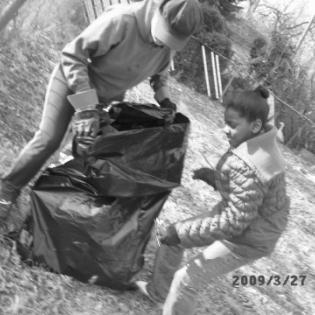Trash to Treasure
This lesson helps learners see the potential for reusing materials rather than throwing them away. They research and contact community organizations that support recycling efforts.
The learner will:
- compare the environmental effects of recycling vs reusing.
- create recycled art to be exhibited in an Art Exhibit and Auction.
- identify organizations in the community that promote recycling efforts or projects.
- items from a recycle bin
- Plastic gloves for all learners
- glue, paint, fabric, wire, and other construction materials
- access to small tools, such as a utility knife, screwdriver, hammer, pliers, wire cutter
Instructions
Anticipatory Set:
"The greenest choice is the one that already exists." When shopping for clothing, recreation equipment, furniture, and other items, the best choice for the sake of the environment is finding something used that is still useful rather than buying new. Talk about why reusing is a better choice than recycling or throwing away objects.
Ask where they buy used items and share stories of good finds at nonprofit resale shops, garage sales, and on online marketplaces.
Recycling bottles, boxes, packaging, and junk mail is better for the environment than putting them in a landfill. These items can be remade into new items, but it takes energy, transportation, money, and time to recycle. Some items we recycle still end up in the trash for financial reasons. Unfortunately, some things we recycle or donate, end up accumulating in other countries and becoming their trash problem.
Challenge the group to make art or useful objects out of items from the recycle bin. They can write an accompanying artist statement that tells about the environmental message of their piece. Display their pieces at an “Art Fair Exhibit” that symbolizes and communicates a “Trash to Treasure” idea.
Optional: If there is interest, they may create an auction (silent bidding) with the help of a local non-profit organization involved in recycling.
Philanthropy Framework
-
Strand PHIL.IV Volunteering and Service
-
Standard VS 01. Needs Assessment
-
Benchmark MS.1 Identify a need in the school, local community, state, nation, or world.
-
-
Standard VS 03. Providing Service
-
Benchmark MS.3 Describe the task and the student role.
-
Benchmark MS.5 Articulate and demonstrate the safety procedures that are part of the volunteer experience.
-
-
